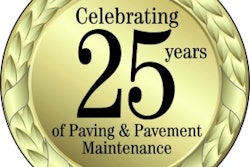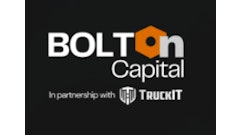Sooner or later, every contractor, from the smallest to the largest, is going to ask:
- What is this place worth?
- How long am I going to keep doing this?
- How do I convert my investment into money?
- Who do I sell it to?
- What is it going to cost in taxes when I sell?
- What do I have to do to get ready to sell?
- And the big question: How much will I keep?
Have you been having this discussion with yourself recently? If you haven’t, you will sooner or later.
After talking with the editor about topics this month, we decided some discussion of the value of a contracting business may be in order and I agreed — it’s a topic close to my heart. But rather than get into a number of schedules and formulas, I thought we should just go through non-financial aspects of a transition from ownership to money.
To keep this short and sweet, you want your company to maximize cash flow and you want debts, especially bank debt, kept to a minimum. Believe it or not, this is the path to the “how much will I keep” question.
To digress for a minute, think about how equipment ownership may upset your goal to minimize debt. There is little doubt if I was thinking of selling I would avoid debt service like the plague and rent/outsource as much as I could.
Find Examples of Industry Offerings
If you’ve never had the chance to review an offering memorandum, please do so no matter what kind of business is being sold. If you can, find a journal that contains construction companies for sale and see if you can get the information they put together to showcase the business. If you can identify one that’s close to your type of business, and the information is well prepared (you’ll know it if it is), you are on your way to answering some of the questions noted above.
You may also want to get your hands on SEC information on public construction companies. They provide a ton of data on how these companies do business and describe their cash generation procedures, from preparing a bid to completing the punch list.
After reviewing these financial materials, you will have an idea of what your “presentation” has to look like if you hope to get top dollar for your investment. It may take a while to get it into this format, but you are at least starting the process with a goal to make your numbers look as good as those found in other formal offering memorandums.
But when all is said and done, keep in mind that what buyers are buying and what you are selling is cash flow. When you think about it, what else is there? I am not going to define “cash flow.” I’ll leave that as your homework assignment, because if you are serious about selling, you will review the financial documentation to find the cash flow schedules and see how they work and are calculated. Of course, you can cheat and ask your accountant to educate you with live examples. I’m sure they will be glad to do so.
Buyers are also highly interested in your type of work, length of work, backlog of work, profitability of work, employee expertise, employee retention, insurance issues, financing issues, operating leases, equipment lists, orderly liquidation value of equipment and how long you have successfully operated the business through thick and thin.
How Much of a Bite Will Taxes Take?
Taxes are another very important part in this equation. If you are the least bit interested in finding out what you can keep, ask your tax person for an estimate of the tax bite for various selling prices — but be prepared for an answer you don’t like if you own a lot of fully depreciated equipment you are selling.
It is not uncommon for a seller to have to use sales proceeds to pay off debts, expenses and taxes. I have personally been involved in many deals where the final piece of the financial puzzle killed the deal. Guess what that was? The tax bite, of course. Collect the proceeds, pay off debt and expenses and believe you are on to retirement heaven — until Uncle Sam appears to take his chunk of your life’s work and there is not much left.
Selling a business is an art form. Selling a contracting business is both an art form and a pain in the _ _ _. Consummating a favorable transaction requires the owner to get a handle on how the process works, and then work it in his or her favor. Do your homework. Find some publications that spell out how to value a contracting business. Bug your accountant and tax preparer for information on how to maximize cash flow and how to better prepare your financial data for presentation purposes.
You want your company’s data to tell a story of why your business is worth what you are asking. But do yourself a favor and work backwards by getting a handle on your tax bite first.
All the folks I know that successfully sold their business knew the ins and outs of the deal process better than the professionals. They got that way by understanding all aspects of the valuation process, how their cash is generated, their tax exposure and what kind of financing is available for their type of business.




















